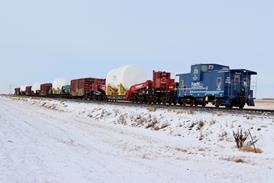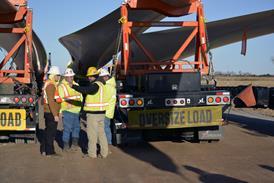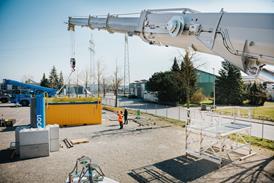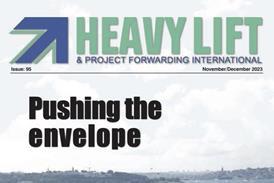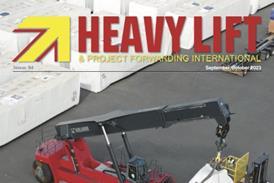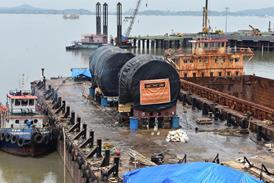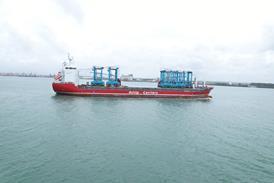May 5 - At last week's Multimodal event in the UK, delegates were reminded that a new UN code of practice requiring container weights to be verified before shipping will enter into force in July 2016.
Under-declaration of container weight, or unsafe loading, has been responsible for many serious truck accidents, and was implicated in the sinking of the MSC Napoli in 2007. Speakers at the event said better information about box contents may have averted the fire on board the MSC Flaminia in 2012, which claimed three lives, and last year's fire on the Maersk Kampala.
Richard Brough, technical and admin director for the International Cargo Handling Coordination Association (ICHCA), estimated that up to 20 percent of containers are misdeclared.
One 8,000 teu vessel leaving Rotterdam was discovered to be 6,000 tonnes over its declared weight, putting enormous strain on its lashing system.
These discrepancies might explain why 600 boxes are washed overboard every year, according to official statistics. ICHCA puts the real figure closer to 10,000.
Under the new regulation, boxes will have to be weighed and verified before loading. But at what point in the transport chain, Capt. Brough wondered? At the container crane it was too late. The shipper may have to come to the port to resolve the problem if a box was too heavy - and it could mean the law had already been broken on the road or rail journey.
Sharon James, secretary of the dockers' section, International Transport Workers' Federation (ITF), said unstable containers moving by road were a public safety issue, not just a threat to drivers. "Who takes it back if the port says it's illegal?" she asked.
Andrew McNab, marketing director of the biggest UK road container transport operator, showed shocking examples of trucks tipping over on twisty roads or roundabouts, in one case within minutes of leaving the dock gate, because heavier cargo had been placed on top of lighter, or the load was unevenly distributed.
"The onus is still on the driver when it ought to be on the packer," McNab said. "We need everyone in the supply chain to be aware of and fully accept the guidelines. We need more and better training for everyone involved, including shippers, packers and warehousemen."
Chris Welsh, director of global and European policy at the Freight Transport Association (FTA), which coordinated Wednesday's Multimodal seminars, said the UK government favours pre-verification using the calculated weight method rather than physical container weighing. "Some believe that's a cop-out, but there will be sampling, especially of shippers who are not known or trusted," he said.
Peregrine Storrs-Fox, risk management director for the TT Club, said technology may come to the industry's rescue. Weighing via twist-lock sensors would allow those moving containers "to gain more knowledge not just of weight, but what's going on inside the box," he said.


